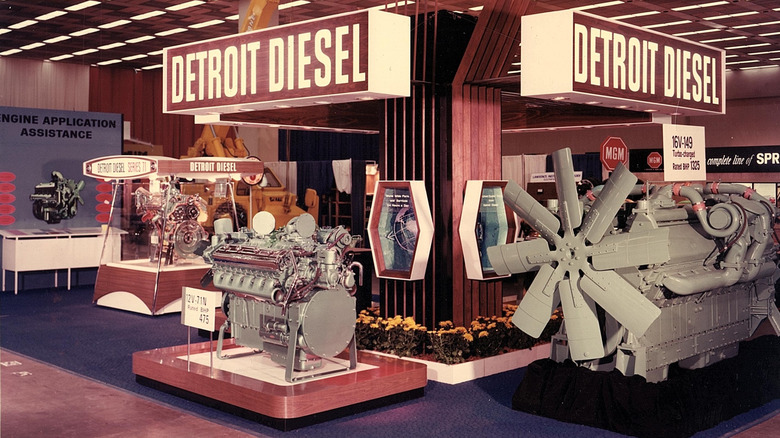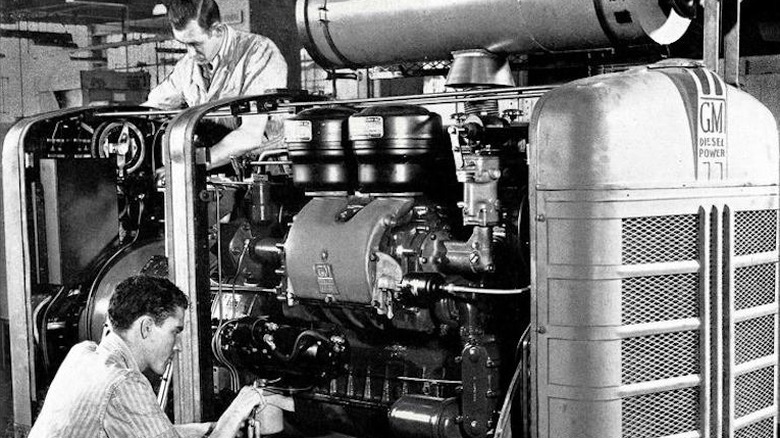Why Did GM Sell Detroit Diesel And Who Owns The Company Today?
Detroit Diesel started as the GM Diesel Division, formed by General Motors in 1938. It initially produced the Series 71, a two-cycle engine for military and construction use. In 1955, GM Diesel created heavy-duty diesels aimed at the commercial trucking market, one of them being the Series 53 engine, designed for many applications within the highway use category.
In 1965, GM Diesel was renamed the Detroit Engine Division, due to it being combined with the gas turbine and transmission businesses of the Allison Division, which GM had owned since 1928. From 1970 through 1986, it was known as Detroit Diesel Allison, eventually focusing solely on diesel engine development, with the gas turbine piece retaining the Allison Division name.
In 1987, the Detroit Diesel Series 60 was created to answer the demand for fuel-efficiency in a heavy-duty diesel. The Series 60 became North America's top-selling Class 8 diesel engine and played a pivotal role in American trucking. Sadly, serious quality problems led to the loss of some major customers, and GM had to look for a buyer.
In 1988, the Detroit Diesel Corporation was formed as a joint venture of GM and Penske Corporation. This was the same year that Detroit Diesel stopped making two-stroke engines. In 1993, GM and Mercedes-Benz signed a funding agreement that gave Mercedes an 11 percent stake in DDC for $20 million. Tougher emissions standards were approaching in 1997, and DDC was carrying a huge amount of debt. A 1993 stock sale raised $99 million, but the future still looked bleak. It was time to sell.
Who owns Detroit Diesel today?
Today, the company formerly known as Detroit Diesel Corporation is owned by Daimler Trucks North America. DDC was acquired by DaimlerChrysler in 2000, at which time the company brought every one of its commercial truck divisions together to form DTNA.
DDC was treated to a $300 million refurbishment of its manufacturing facility in 2005. In 2008, the company reached two important milestones. One was the Series 60 engine reaching a total of one million units sold, and the other was the launch of the DD15 engine, which evolved into the DD16, the most powerful diesel engine Detroit ever made.
The year 2010 saw an additional $190 million invested into DDC, for additional engine development and its BlueTEC emissions technology launch. During 2011, there was a name change, from Detroit Diesel Corporation to simply Detroit. This was done due to the company's expansion into the production of axles and transmissions.
The Detroit organization currently boasts a distribution and parts network of more than 700 locations in North America. Since 2021, it has become a player in the zero-emissions market with powertrain components designed for medium and heavy-duty electric trucks.
Detroit recently committed to spending $285 million to add 110,000 square feet to its Michigan factory for a Zero Emission Vehicle research and development facility. This expansion of the factory, which dates back to the birth of the company in 1938, will be dedicated to battery testing and prototyping.

